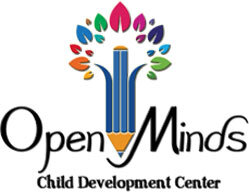Guiding the Growth: Exploring Developmental Stages with Open Minds
Hey there, curious parents and educators! Are you finding yourself with a two-year-old who seems to have mastered the art of meltdowns or a three-year-old who has been extremely chatty lately? Get ready to embark on a journey of discovery, understanding, and growth as we unravel the mysteries behind your little one's developmental leaps and bounds.
Welcome to Open Minds, where we're not just early childhood educators, but passionate guides on the incredible journey of childhood development. So, buckle up, because we’re going to help you navigate your journey of age-related developmental stages with insight, empathy, and understanding.
During the first year, Infants (0-12 months) bring a mix of joys and challenges that keep the best on their toes. Sleepless nights? Yep, those frequent wake-ups can leave us all feeling a bit like zombies during the day. And let's talk about the awkward communication dance; trying to decipher those tiny cues and needs can sometimes feel like cracking a secret code. And safety? Well, let's just say babyproofing becomes our new favorite hobby as those little explorers start to move more freely. Navigating the twists and turns of infant development can get easier when you understand what your infant is experiencing.
Infants (0-12 months):
Lifts head and chest when lying on stomach (around 2-4 months)
Rolls over from front to back and back to front (around 4-6 months)
Sits without support (around 6-8 months)
Crawls or scoots (around 7-10 months)
Pulls self up to stand (around 8-12 months)
Says simple sounds like "ma-ma" or "da-da" (around 6-9 months)
Begins to babble with different consonant sounds (around 6-9 months)
Begins to explore objects with hands and mouth
Responds to familiar faces and voices
Begins to understand simple instructions, like "wave bye-bye"
Toddlers (1-2 years) bring a lively phase that’s as fun as it is challenging. This age marks the exciting moments of first steps and early words, as toddlers begin exploring the world more independently. They’re curious about everything, which means you’ll be on constant patrol as they explore. This age is famous for the “terrible twos”, characterized by tantrums and a strong desire for independence. Despite the occasional meltdown, it’s incredibly rewarding to see their personalities develop. Let’s break down these developmental shifts:
Toddlers (1-2 years):
Takes first independent steps (around 9-15 months)
Begins to use simple gestures like pointing or waving
Says first words (around 12-18 months)
Follows simple commands and understands simple questions
Begins to imitate others' actions and words
Shows interest in playing with other children
Starts to show signs of independence and wants to do things on their own
Begins to explore objects with more purpose and creativity
Engages in pretend play, like feeding a doll or talking on a toy phone
Shows affection towards familiar people, like hugging or kissing parents
Preschoolers (3-5 years) are at an energetic and expansive stage that is just as adventurous as developmental. Watch them master running, jumping, and climbing with real skill, and get ready for lots of proud fridge moments as their drawings and scribbles start to look like real letters and shapes. You may wonder why you’re constantly being asked: “Why?”. As they begin getting the hang of doing things by themselves, we have to navigate a new stage of development:
Preschoolers (3-5 years):
Runs, jumps, and climbs with coordination
Draws simple shapes and begins to copy letters or shapes (around 3-4 years)
Speaks clearly and uses sentences with 3 or more words
Follows multi-step instructions
Begins to understand concepts like counting, colors, and shapes
Shows empathy towards others and begins to understand sharing and taking turns
Engages in imaginative play with elaborate storylines
Shows interest in learning new things and asking questions
Begins to show independence in self-care tasks like dressing or using the toilet
Starts to develop friendships and enjoys playing with other children in cooperative activities
Remember – these milestones are general guidelines, and every child develops at their own pace. If you have concerns about your child's development, it's always a good idea to discuss them with a pediatrician or early childhood development specialist.
What topic should we cover next time on our blog? Share your ideas with us in the comments section!
